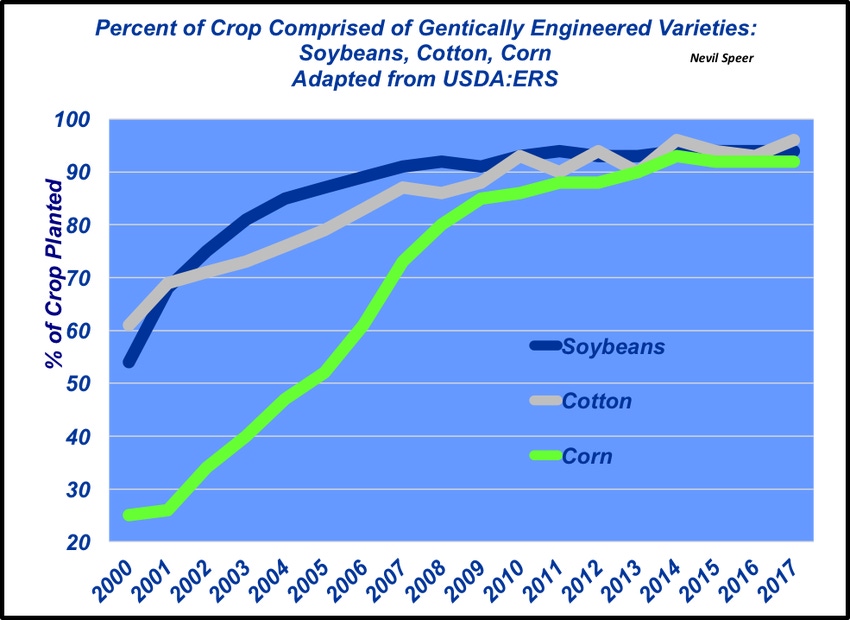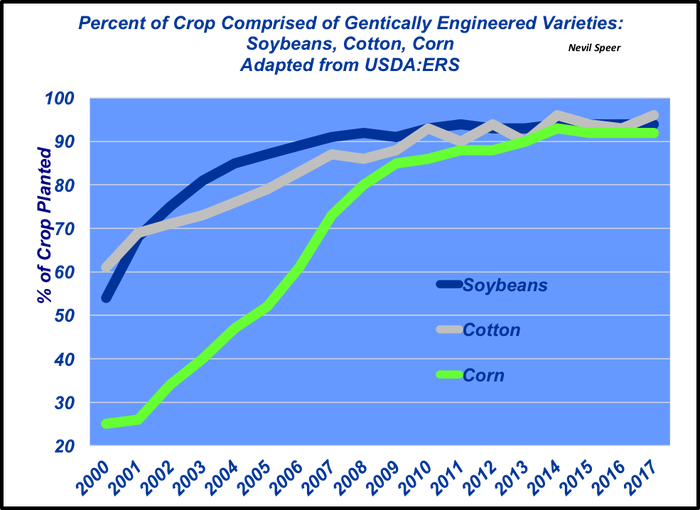GMO crop prevalence nearly 100%
In spite of the manufactured hysteria over GMO crops, the technology has been proven safe for humans. Maybe that’s part of the reason nearly all crops are now grown from GMO seed.
November 16, 2017

News around dicamba has been especially active in the past week. The coverage largely results from an Arkansas regulatory panel (Arkansas Plant Board) opting to partially ban dicamba use in the coming year. Farmers will be prohibited from using dicamba between April 16, 2018 and October 31, 2018. The regulatory change is pending based on final approval from the Arkansas Legislative Council.
For background, dicamba is not new technology. It’s a broad-spectrum herbicide that’s been commercially registered since the mid-‘60s. It’s commonly known by tradenames including Banvel, Diable, Oracle and Vanquish. Most recently, Monsanto has marketed new dicamba-resistant crops with the trade name Xtend.
However, increased use of dicamba has resulted in numerous complaints about unintentional drift and subsequent crop damage in plants that don’t possess the Xtend technology. Thus, the recent Arkansas ruling. As the rule stands now, farmers and ranchers will still be able to use dicamba for weed control in pastures.
All of that brings us around to the broader topic of genetically-engineered (GMO) crops. This week’s graph highlights adoption rate and prevalence of GMO crops over time. GMO prevalence in the 2017 growing season was 92%, 94%, and 96% for corn, soybeans and cotton, respectively.

Where do you see all this discussion headed? Will we ultimately see some change going forward? Will farmers begin to shift strategy to fight mounting weed resistance? Will regulation drive change? What might the consumer influence have on these trends in the future? Leave your thoughts in the comments section below.
Nevil Speer is based in Bowling Green, Ky., and serves as vice president of U.S. operations for AgriClear, Inc. – a wholly-owned subsidiary of TMX Group Limited. The views and opinions of the author expressed herein do not necessarily state or reflect those of the TMX Group Limited and Natural Gas Exchange Inc.
About the Author(s)
You May Also Like





